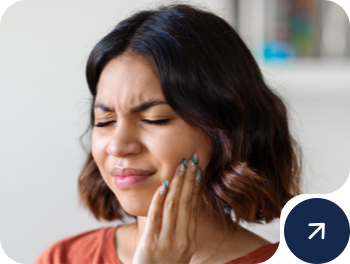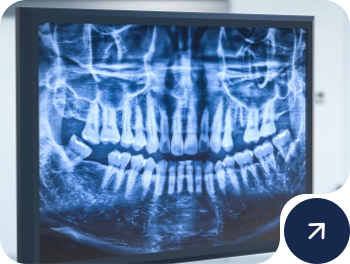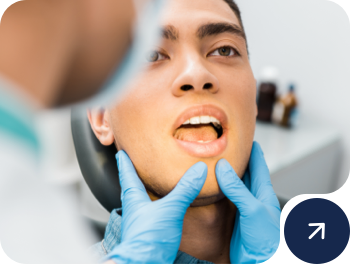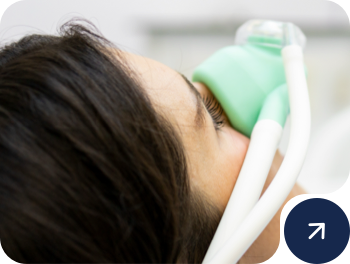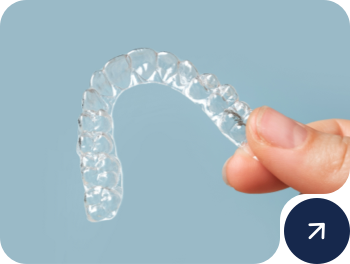The rise of vaping has introduced new challenges for oral health. While many turn to vaping as a perceived “safer” alternative to smoking or as a tool for quitting, vaping still carries potential risks to your teeth, gums, and oral health. That’s why it’s important to talk to experts like your family dentist about the health effects vaping can have.
Vaping is particularly popular among younger generations. Nearly 30–50% of young Canadians have tried vaping. So it’s equally important to talk to your children about vaping and share the information you learn about its health effects.
How Does Vaping Affect Oral Health?
Vaping aerosols, inhaled directly into the mouth and throat, can cause irritation and dryness. Over time, reduced saliva production can increase vulnerability to sore throats, dry coughs, oral infections, cavities, and gum disease. Saliva is essential for washing away bacteria and neutralizing acids—without it, your oral health can decline.
How Does Vaping Affect Gum & Tooth Health?
Vape liquids contain harmful chemicals, including nicotine. Nicotine restricts blood flow, which raises the risk of gum disease. Other ingredients, like formaldehyde and trace metals, irritate the gums and leave them prone to infection. Long-term exposure can lead to inflammation, cavities, and permanent tissue damage.
Vaping also contributes to plaque buildup and enamel erosion. Ingredients like propylene glycol and artificial flavourings dry out the mouth, creating an ideal environment for bacteria to thrive. Weakened enamel increases sensitivity and the risk of decay.
Practicing good oral hygiene—brushing, flossing, and regular dental visits—can help mitigate these effects.
Effects on Overall Health
Oral health is closely connected to overall well-being, and inflammation and bacterial imbalance caused by vaping can contribute to systemic health issues beyond the mouth.
Poor oral health is linked to an increased risk of cardiovascular disease, as bacteria from the mouth can enter the bloodstream and contribute to arterial plaque buildup. Vaping has also been associated with respiratory problems, as inhaled aerosols can irritate lung tissue and exacerbate conditions like asthma or chronic bronchitis.
Protecting your oral health isn’t just about your teeth and gums—it plays a role in maintaining your entire body’s health.
Bad Breath & Other Signs to Watch For
The effects of vaping aren’t always immediate, and not everyone will have the same reactions. But, certain symptoms can indicate underlying oral health concerns that require professional attention. If you notice any of the following signs, visit your dentist for a closer look.
Persistent Bad Breath
A dry mouth caused by vaping can reduce saliva flow, allowing bacteria to build up and cause bad breath (halitosis). If your breath remains unpleasant despite proper oral hygiene, it’s time to seek professional advice.
Gum Issues
Red, swollen, or bleeding gums—especially during brushing or flossing—may be a sign of early gum disease or irritation from vape liquid.
Increased Tooth Sensitivity
Sensitivity to hot, cold, or sweet foods could signal enamel erosion or cavities. Vaping’s effects on saliva flow and bacteria can worsen these issues, leading to discomfort or pain.
Mouth Sores or Ulcers
Recurring sores or ulcers in the mouth may indicate irritation from vaping aerosols or an imbalance in your oral microbiome. These symptoms can also signal other underlying health issues and should be evaluated by a professional.
Tooth Discolouration or Staining
While vaping is often marketed as a cleaner alternative to smoking, nicotine-containing vape liquids can still stain teeth. Keep an eye out for yellowing or discolouration, especially if you use nicotine-based products.
Loose Teeth or Receding Gums
Advanced gum disease can lead to gum recession and even loose teeth. If you notice changes in how your teeth feel or appear, it’s important to act quickly to prevent further damage.
Will Quitting Vaping Improve Oral Health?
Yes! Research shows that quitting vaping can lead to improved oral health over time.
Quitting vaping means you’ll no longer be exposing your mouth, lungs, and body to nicotine and other harmful chemicals found in vape liquids. When you stop exposing your mouth to the chemicals found in vape liquids, your body can heal and recover from the effects of dry mouth, inflammation, and bacterial imbalance.
How to Quit Vaping
The road to quitting vaping is different for everyone, but support is available. Many healthcare providers, including your dentist, can offer guidance and resources tailored to your needs.
Smoking cessation programs, counselling services, and nicotine replacement therapies can make the transition easier. You can also explore online resources, such as:
While your body has a remarkable ability to repair itself, professional dental care plays a key role in reversing and preventing further damage. If you’re transitioning away from vaping, schedule a visit with our dental team to assess your oral health and receive personalized guidance.





